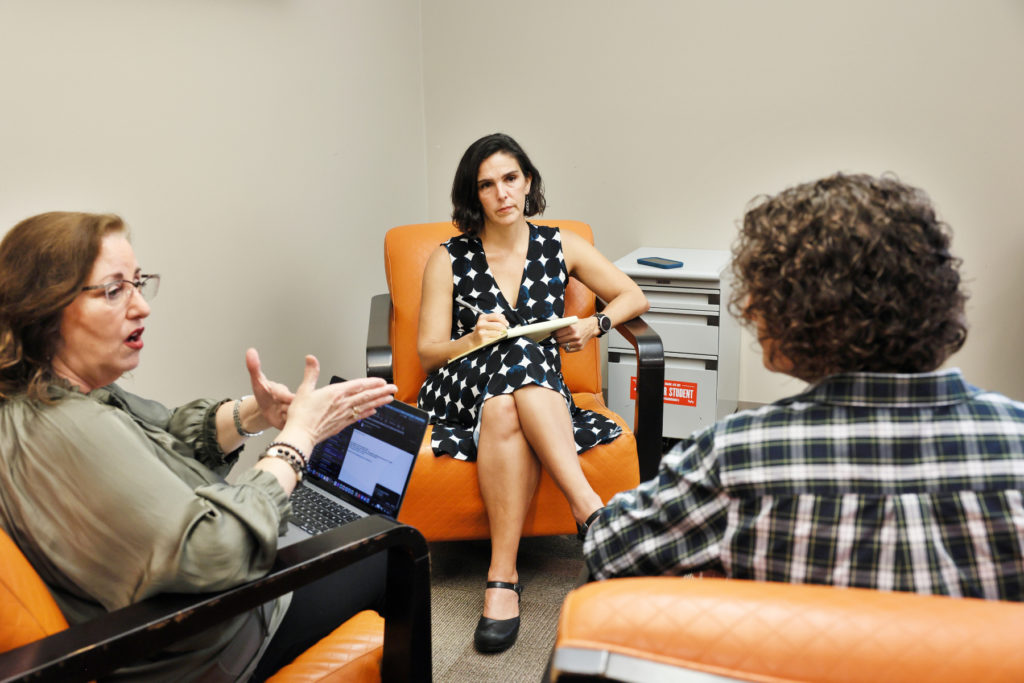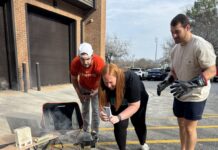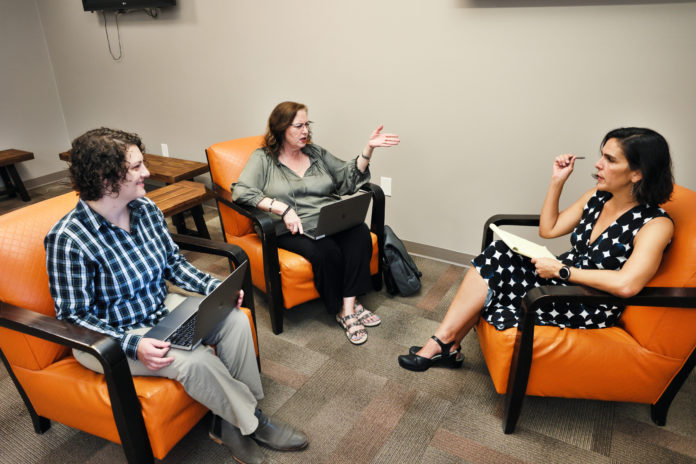
Dozens of boards in Macon-Bibb County receive millions of dollars in taxpayer funding. But for years, many of them conducted business without public scrutiny of how the money was spent.
The Macon Newsroom, a nonprofit newsroom that operates out of Mercer University’s Center for Collaborative Journalism, is changing that.
The news organization puts two veteran reporters, called civic journalism fellows, in public meetings where decisions are made and gives them the time and freedom to investigate issues that affect Macon-Bibb County residents.
“Without the work that our civic fellows are doing, there are a lot of government agencies deciding things for the citizens that people would not otherwise know about,” said Debbie Blankenship, director of the Center for Collaborative Journalism and editor of The Macon Newsroom.
Senior Fellow Liz Fabian has written stories that include educating Macon-Bibb County residents about a new stormwater surcharge, taking a hard look at bond spending for a proposed plastics recycling plant, and reporting on the conflicts of interest and potential fraud of a Macon Water Authority board member who was also running for chairman.
“Over the years, government reporting has taken a back seat to stories that are better clickbait online, and as a result, some vital aspects of our society are being relegated to public information news releases instead of watchdog journalists keeping an eye on everything,” Fabian said. “You only get what the public information officer wants you to get, and critical things are missed.”
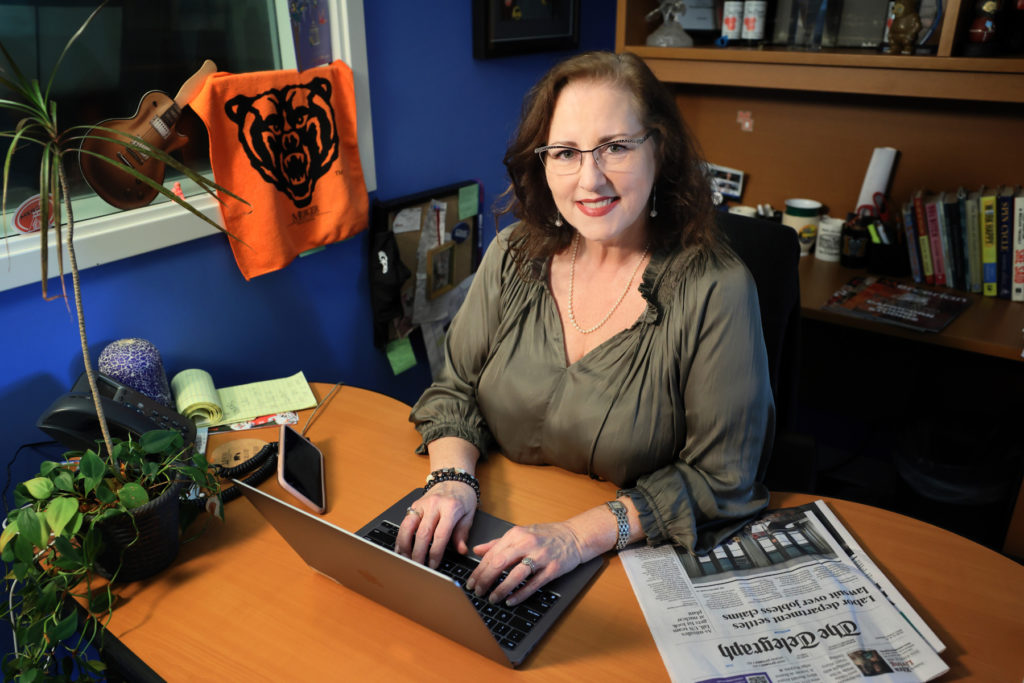
Fabian and Fellow Laura Corley are often the only reporters who regularly attend the meetings of many government-funded boards. Journalists from other news organizations usually will show up only if there is a notable item on the agenda, like setting the millage rate, Corley said.
She reported extensively on the Bibb County school board’s search for a new superintendent. After publishing a story about a lack of transparency in the search, the school board announced a public comment period seeking feedback.
Corley also reported on the lack of oversight of the Macon-Bibb County Economic Opportunity Council Inc., an agency that contends to be a private entity despite being largely funded by federal tax dollars. She revealed the nonprofit’s vehicles erroneously had county tags, and as a result of her reporting, the tags were revoked.
“The accountability reporting in Macon for a long time has not happened, so people have become comfortable doing business without any eyes on them,” said Corley, a 2014 Mercer alumna who majored in journalism. “We’ve been working on retraining that muscle.”
Seeking community support
The Macon Newsroom launched in 2019 as a pilot project after Blankenship noticed a need for accountability journalism in Macon-Bibb County.
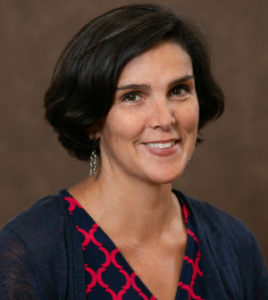
“I realized that Macon actually has about 40 boards, agencies and commissions that make some sort of decision about how taxpayer dollars are spent and, at that time, really only the county commission was being covered,” she said.
With funding from the Knight Foundation and support from Mercer, Blankenship hired Fabian, a former reporter of The Telegraph newspaper and several TV stations in Macon, to start reporting on some of these groups.
“We see this as part of Mercer’s service mission, and the way that we’re serving the community is by trying to address information gaps,” Blankenship said.
Fabian started with a focus on the Macon-Bibb County Planning and Zoning Commission, Macon-Bibb County Urban Development Authority, Macon Water Authority and Macon Housing Authority.
“It’s not even just a matter of oversight,” Blankenship said. “Sometimes (these groups are) doing really important things, and nobody knows that they’re doing them.”
Not long after Fabian started, The Telegraph lost its full-time government reporter, making her work even more vital, Blankenship said.
In 2020, The Peyton Anderson Foundation approached Blankenship about funding another reporter, and Corley, a former Telegraph reporter, started in 2021 with a focus on education, health and public safety.
Mercer journalism students also contribute to The Macon Newsroom, which publishes its stories online at macon-newsroom.com.
The articles may be republished, with credit, for free by any news organization. The Telegraph and 13WMAZ in Macon, as well as Georgia Public Broadcasting and The Atlanta Journal-Constitution, have all published The Macon Newsroom’s work.
“Reporters Liz Fabian and Laura Corley do an excellent job of watching out for the public interest by reporting on the decisions and decision makers in Macon-Bibb County government,” said Lorra Lynch Jones, news director at 13WMAZ, a partner with Mercer’s Center for Collaborative Journalism.
“A healthy community needs local journalism and the more, the better,” she added. “Local journalists attend meetings the general public cannot, follow trails of public records, ask questions and hold the powerful accountable.”
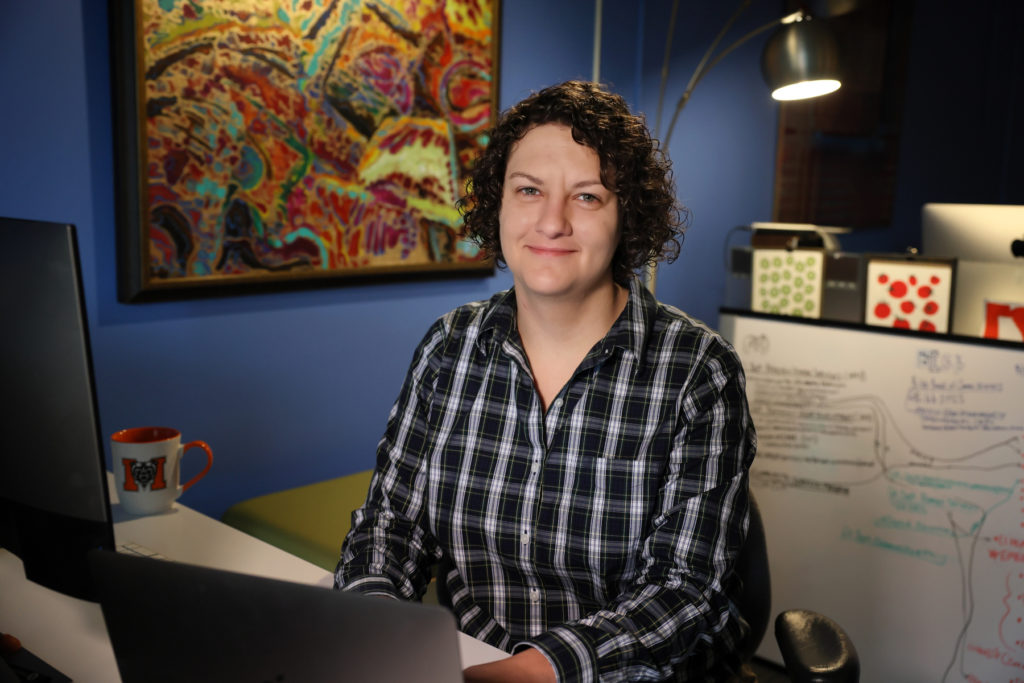
Now that the pilot has proved successful, The Macon Newsroom is taking the next step in trying to become sustainable.
Mercer supports much of The Macon Newsroom’s infrastructure, and the newsroom’s current grant funding is available through August 2023, Blankenship said. She is pursuing additional grants to keep the newsroom up and running and is also asking the community to help.
The long-term goal is to become a nonprofit separate from Mercer, she said.
“We are just starting to reach out into the community and ask people who care about government accountability and care about a healthy democracy and care about local information access to consider making a contribution,” she said.
Donors may make recurring or one-time gifts through The Macon Newsroom website or directly at bit.ly/Support-Macon-Newsroom.
Across the country and locally, corporate newsrooms have slashed budgets and cut staff, leaving fewer journalists to fulfill the watchdog role in their communities. Between 2008 and 2020, the number of newsroom employees dropped 26%, according to the Pew Research Center.
The Macon Newsroom is helping fill that gap.
“Lots of things happen when nobody’s watching,” Corley said. “And we’re watching now.”
